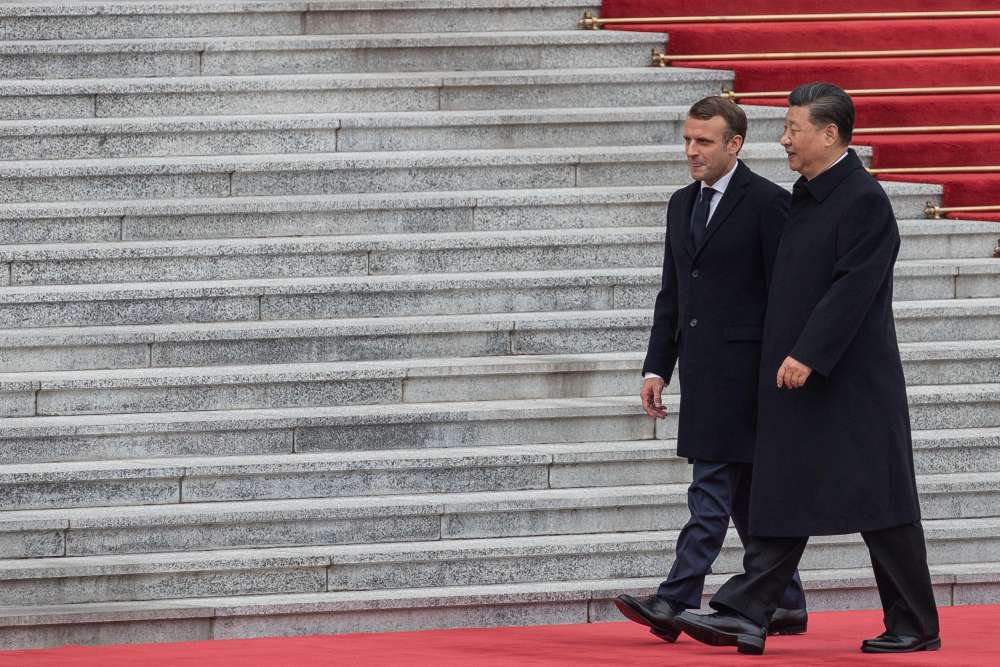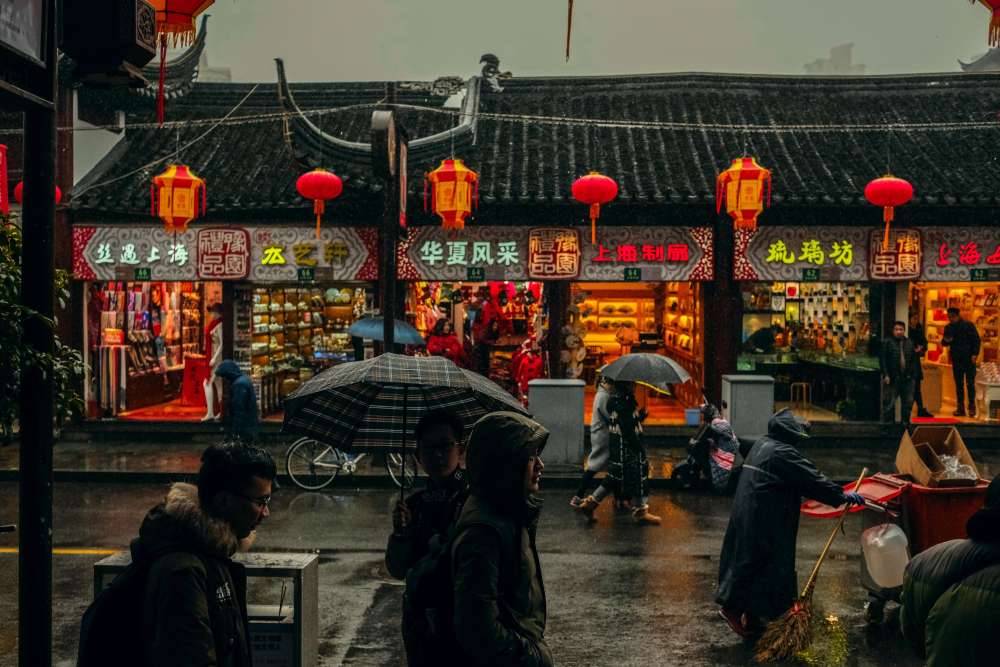Germany and the EU Need to Keep Engaging with China
History teaches us that a decoupling from China will likely backfire. Without Beijing, efforts to solve key global issues will not succeed. Germany should focus on avoiding over-dependencies on China – not abandon ties altogether.
Many in the West are fiercely questioning the idea of continuous engagement with China. In the US, most policymakers and commentators are now against it because it implies supporting a totalitarian regime, if not an outright dictatorship. In the European Union, the idea of upholding ties with China is not fashionable either given Beijing’s human rights abuses in Xinjiang and Hong Kong. Many believe that it was a mistake to include China in the World Trade Organisation (WTO) and expect that through economic and political engagement the country would become more “like us.” Increasingly, the dominant sentiment seems to be the opposite: that by incorporating China into the world economy – and thus speeding up what has been labelled as the process of “hyper-globalization” – the West has strengthened the power of the Communist Party of China. Engagement, instead of making China more liberal and democratic, has only reinforced its authoritarian tendencies.
But has engagement really failed? To confidently say yes to this question – as many now do – one needs to present a convincing counter-factual. There might be analysts out there who think that a more isolated and poorer China would have become a more liberal, more open and friendlier one than Xi Jinping’s China is today, but this is illusory. The more plausible counter-factual is the behavior of present-day Russia: a former empire which feels encroached and humiliated by the West and sees the necessity to revindicate its Great Power status by brute force. No one wants to see that kind of China.
Good Intentions Gone Sour
Perhaps engagement has not produced the expected results because the ultimate objective was overly ambitious and, one could even argue, naïve. Believing that China, the longest-living civilization, would become more “like us” – meaning liberal and democratic – was always bold. It was also paternalistic. As Taisu Zhang explains, engagement “aimed at conversion to liberalism” was always bound to encounter a nationalist backlash in China. Too many Westerners, for too long, went to China with the (in many cases) good intention to get the Chinese to “see the light.” Now we know: this backfired. Big time. A more genuine form of engagement, one based on the acceptance of China’s governance model, with its bright and dark sides, might have produced better results.
The reality is that very early on after China’s WTO accession, there was a lot of criticism of China’s socio-economic model in the West. In 2005, Ben Bernanke had already come up with the so-called Savings Glut Theory Savings Glut Theory, which was a clear rebuke to China’s path of heavy state intervention in the economy, particularly in its exchange rate and capital flows. When the global financial crisis hit in 2008, there was a lot of praise for China, which was then perceived as having saved the world economy with a big macroeconomic stimulus; but already in the immediate aftermath of the crisis, Bernanke’s theory was the dominant explanation for why the crash had originated in the West. Effectively, this meant pointing the finger squarely at China. The then-head of the People´s Bank of China, Zhou Xiaochuan, even felt compelled to write a counter-essay in which he explained that the real source of the crisis was the unfettered printing of dollars by the United States.
Global Issues Need Global Cooperation
Increasingly, China´s state capitalism was seen as incompatible with the liberal world order. This explains why only a few years later the Obama administration was already promoting the Transpacific Partnership (TPP) and the Transatlantic Trade and Investment Partnership (TTIP) to contain China’s rise and isolate Beijing. Again, one can argue that this was a form of agenda-driven engagement which only emboldened the nationalists in China.
» Xi’s rise is the most obvious outcome of a more confrontational and even hostile US policy vis-à-vis China. In fact, over the past years, the West has “lost” many Chinese liberals who previously admired the US and Europe and have now become overtly nationalistic and, in some cases, even strongly anti-American. «
In consequence, when Donald Trump stormed into the White House in 2017 and launched a trade and technology war against China, these Chinese nationalists, with Xi Jinping at the helm, had already taken power in Beijing. Xi’s rise is the most obvious outcome of a more confrontational and even hostile US policy vis-à-vis China. In fact, over the past years, the West has “lost” many Chinese liberals who previously admired the US and Europe and have now become overtly nationalistic and, in some cases, even strongly anti-American. This is bad for several reasons. For one, China’s integration into the world economy generated cheap consumer goods for Western workers, lifted over 800 million people out of poverty in China and was a key precondition for crafting a multilateral response to the 2008/09 global (or, more accurately, North Atlantic) financial crisis. One wonders what would happen in the current context of Great Power rivalry if such an international financial shock were to occur today. Cooperation as it took place back then seems totally elusive now.
More importantly, the current tide of disengagement is regrettable because China is an indispensable actor when it comes to solving global problems and providing public goods. And this not only pertains to tackling climate change (which is the usual topic mentioned in this context). China is a key player in every single endeavor on the global governance agenda, from the international non-proliferation of nuclear weapons to international security and terrorism, to food security, global health, international aid and development, and debt restructuring. Isolating China will make cooperation on these issues more difficult.
Key Points:
- Mounting claims that engagement with China was a mistake are missing the point. China still is an indispensable actor when it comes to solving global problems and providing public goods.
- It would be a big strategic error to abandon the Chinese market. German and European companies need to be present there – to ensure their competitiveness and co-determine new tech standards that will emerge in the coming years.
- Germany and the EU should focus on fostering reciprocal ties and avoiding over-dependencies on China – for instance, by putting in place anti-coercion tools, carbon border adjustment taxes and anti-social dumping measures.
No Competitiveness without Closeness
By decoupling from China, the US and Europe would also lose the possibility to collaborate and cooperate with the many Chinese citizens who are cosmopolitan and believe in the values of interdependence, multilateralism and global governance. Keeping the dialogue channels with them open should be a priority. Despite the political repression orchestrated by Xi, China has many liberal-minded citizens – and they are partly the product of efforts to integrate China into the world economy over the past three decades. They have travelled, speak English and see liberal values as a currency. Turning our backs on them would be a mistake.
A bigger strategic error would be to abandon the Chinese market. This is a market that, in terms of the consumption of goods, is already almost as big as the US market – and it is likely to become even bigger, especially if the service sectors are opened. What is more, the dynamism of this market is already producing cutting-edge innovation with global impact. The many European – and, for that matter, German – companies that want to play in the big leagues of their sectors simply cannot afford to miss out on these developments by not being in China anymore. They need to compete in the Chinese market to keep up with the innovation there, but they also need to be able to compete at home and in third markets where Chinese firms are present.
» Despite the political repression orchestrated by Xi, China has many liberal-minded citizens – and they are partly the product of efforts to integrate China into the world economy over the past three decades. Turning our backs on them would be a mistake. «
Many of these Western companies will also want to co-determine the new technology standards that will be decided in the coming years and decades, which in turn requires being close to China and Chinese firms. Disengagement with Beijing, on the other hand, might lead to a situation in which China further expands its presence and influence in the Global South (so in Latin America, Africa and South and East Asia) and starts rolling out its own tech standards. This is a scenario the US and the EU should want to avoid. By trying to decouple or even isolate China from the global economy, the West runs the risk of being seen by the Global South as the defender of an outdated status quo. Even worse is the perception that the US and Europe are starting to build walls around their markets because they are afraid of China’s rise.
» By trying to decouple or even isolate China from the global economy, the West runs the risk of being seen by the Global South as the defender of an outdated status quo. Even worse is the perception that the US and Europe are starting to build walls around their markets because they are afraid of China’s rise. «
Strive for Reciprocity, Avoid Over-Dependency
Historically, powers that have closed themselves off from the world have only accelerated their decline. Germany and the EU should not step into the same trap. Engagement with China should not imply aiming for regime change, nor should it be naïve. Rather, the West should operate according to the principle of economic co-habitation with higher levels of autonomy, as proposed by Dani Rodrik and Stephen Walt. Instead of following the route of decoupling, Germany and the EU should make it a strategic priority to avoid over-dependencies on China. Having anti-coercion tools in place is a must. Introducing carbon border adjustment taxes or anti-social dumping measures should be considered, too. But engagement is still vital – to understand China, to predict its next moves and anticipate them, but also to avoid a downward spiral of distrust and tensions, which can only lead to conflict.
As several scholars have pointed out, confrontational policies by the US have only ever created greater anti-American sentiment in China while reducing the US’ influence there. Germany, and the EU at large, should draw the right lessons from this unfortunate past.
Miguel Otero-Iglesias
Senior Analyst, International Political Economy, Elcano Royal Institute
Weiterlesen

Strategic Ties, Not Blocs: Why Germany Should Promote a Multipolar Order
Instead of joining those who invoke a new Cold War and decoupling from autocracies, Berlin should follow the vision of a polycentric world. Doing so will require a new approach to economic globalization.

War and Unpeace: The Dangers of Connectivity
The age of peace is over. The culprit: global connectivity. Why the connections that knit the world together are also driving it apart – and what this means for Germany’s security policy.

Reality Check on China: Protecting Europe’s Science and Technology Potential
Many European states believe that they are no match for China. But as the French example reveals, this perception may be false. It is high time for Europe to take a realistic look at its dependencies and assets vis-à-vis China – especially in the field of science and technology.
